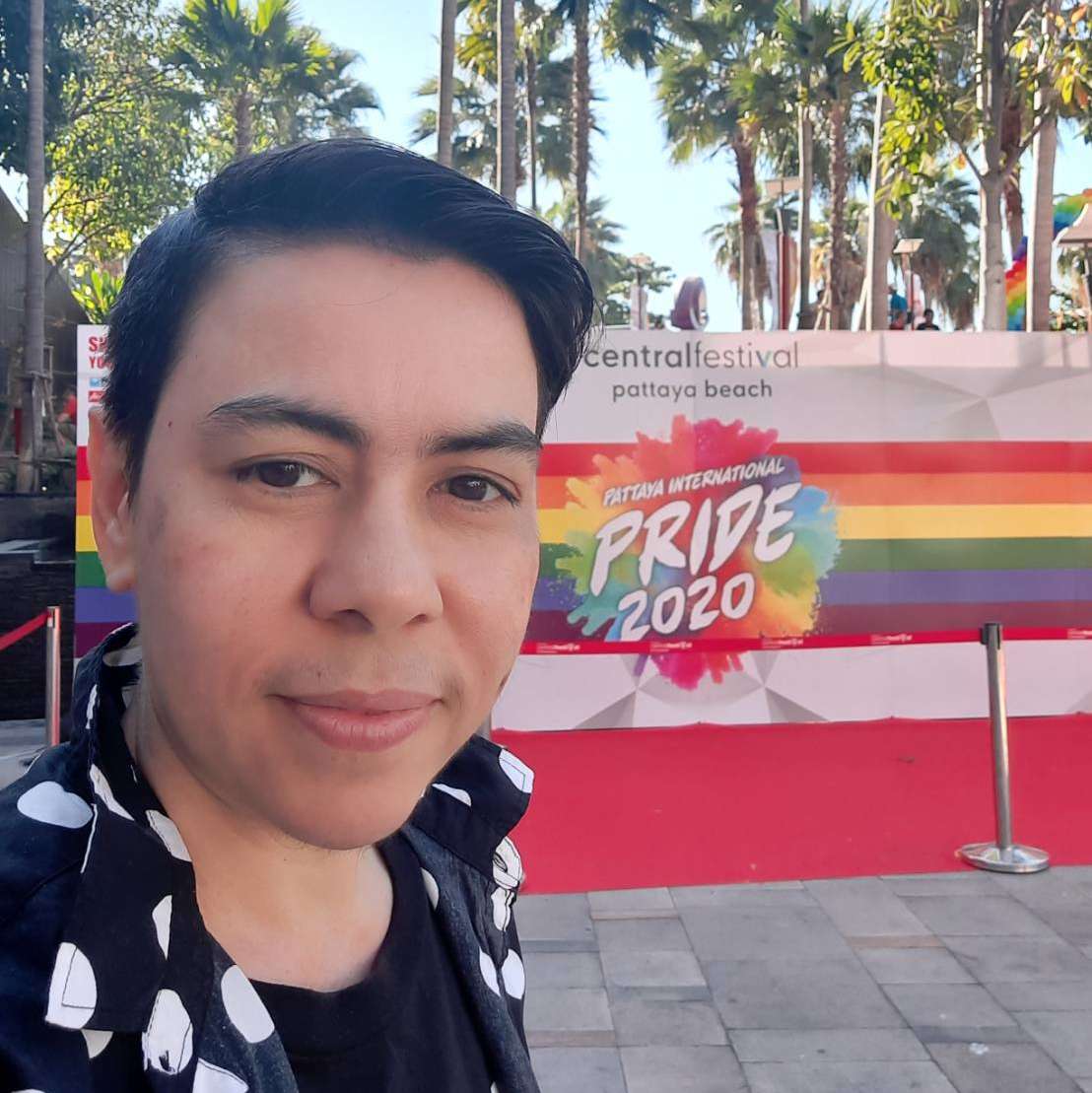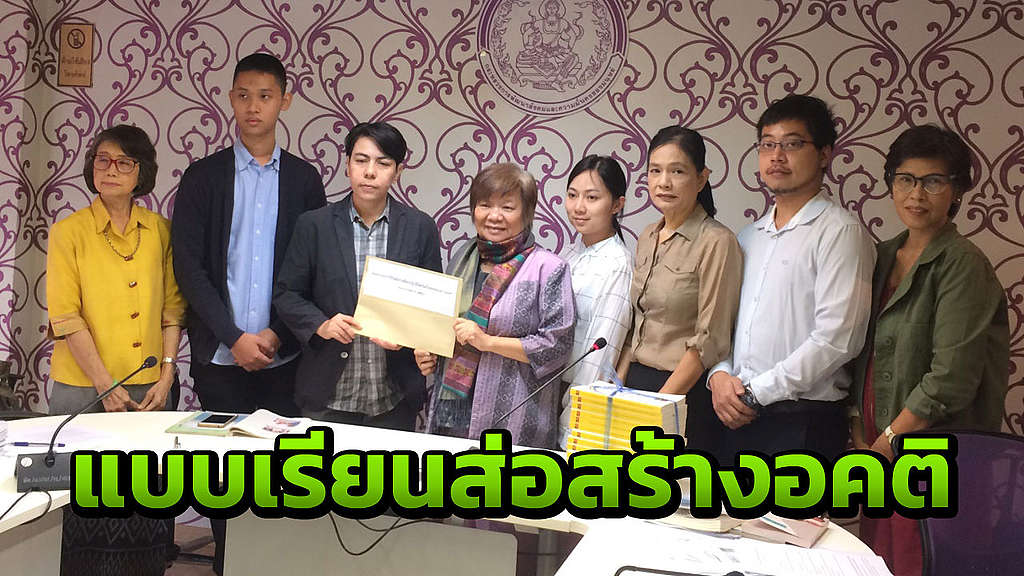The transgender community often receives less spotlight than the rest of the colors in the rainbow. This Pride Month, we’d like our transgender people to take the center stage by sharing the internal and external pressures faced by transgender people – like Parit Chomchuen.
Parit is based in Greenpeace Southeast Asia’s Bangkok office and is a transman who is a local activist for the queer community. This year, Parit joined Greenpeace’s Global Rainbow Network, which is a safe space for queer identifying staff, to continue his activism at Greenpeace and here is his story.

Queer Activism and Green Campaigns
About ten years ago, I visited the Rainbow Warrior II when it parked at Khlong Toei Pier, Bangkok. As an activist in the queer movement, the innovative and proactive way Greenpeace did their campaigns left a strong mark in my mind and I was impressed by their history and work.
Three years ago, I joined Greenpeace because I saw that the environment was facing a crisis and I needed to take action. I believe that my desire to be part of the green movement stemmed from my involvement in Tai Pride and other queer campaigns here in Thailand. In my mind, injustice towards our earth is the same with injustice towards the queer community. Injustice is injustice.
Here at Greenpeace, not only have I become more in tune with global green campaigns, I’ve also found a new platform to further my queer activism including being a core team member of the Global Rainbow Network where I can raise awareness and respect for the rights of queer people, in particular, for transgender people. There is a trans community here at Greenpeace but it’s not a large one making us not as visible as gay or lesbian members here. And so I am glad to have space in this Network to talk a bit about how it is being a transman.
Living in a Box
Transphobia refers to the hate and fear of transgender people. When the hatred and fear are inflicted upon a trans person by the trans person themselves, we call it internalized transphobia. This comes in the form of guilt, negativity and even hate towards yourself.
Most transgender people do not wish to live life according to the sex they were assigned at birth. But how do you learn to be a gender you were not brought up as? Many of us turn to mainstream values, norms and beliefs we find in the society we live in, using these social and cultural conditions as a framework for learning about sexuality.
This framework, unfortunately, is like a box. Anyone outside the box will be judged as wrong. Many of us then fall into this trap. In the case of transgender men like myself, I used to question how I should act as a transman and what type of masculinity should I display? Do I want to be muscular? A mustache? What does it mean to be good looking? Should I use hormonal therapy or even undergo sex reassignment surgery? How can I become accepted, blend into mainstream values? This list of internal struggles and questions go on.

The social mechanism that builds this box is smart and sturdy, making it almost impossible for us to struggle free. But living inside this box comes at high costs not just in terms of financial costs but worst yet, the cost of our health. When we try to break free from this box, we are disliked, stigmatized and even discriminated against. This is the price we pay when we want to be free – homophobia. This phobia impacts our psychological well-being, leaving our community with a higher percentage of depression for example.
As a transman, I wish I could have been taught that gender shouldn’t be found in a box. I wish that the forces behind this box would loosen up, giving us more space to breathe and be ourselves. You can play a role in helping transgender people like myself break free, start by removing fixed beliefs in how gender representation should look and actively showing that you welcome fellow transgender people. And it’s important to have an organizational culture that takes into account equality as well as the rights of the employees, including queer colleagues. With each additional voice, we will become stronger together.
Happy Pride Month!
Parit Chomchuen is Data Entry Officer and activist at Greenpeace Thailand.
